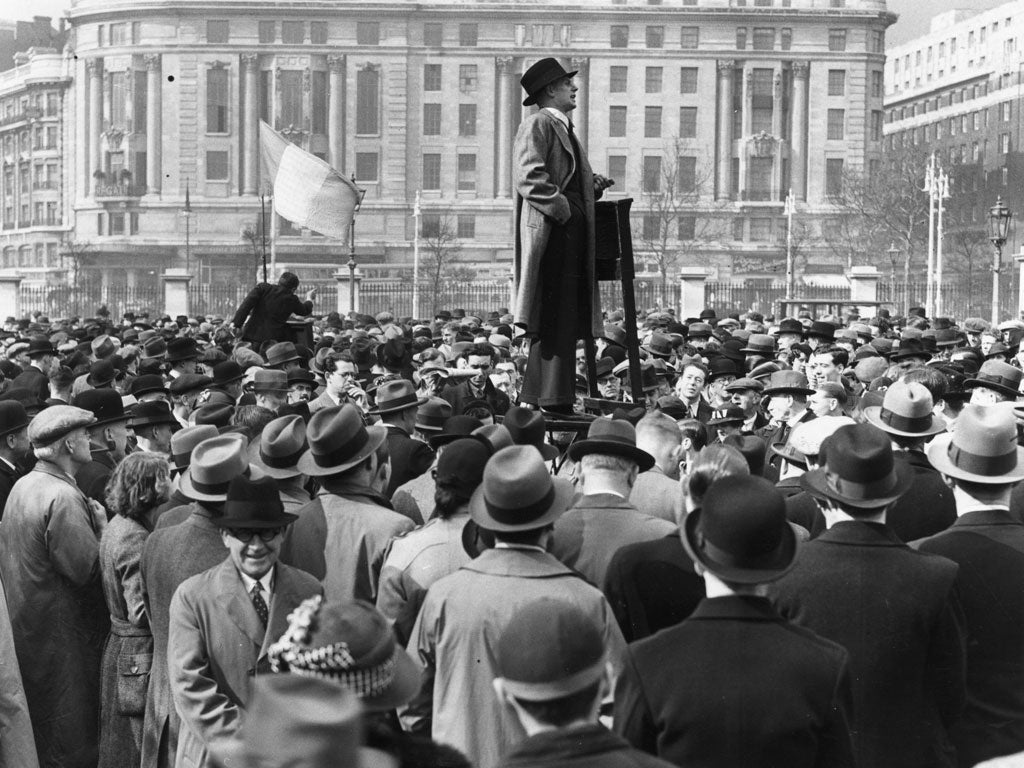Introducing: The Contrarian Prize
Never before has the gulf between what the public want from politicians and what the public get been so wide. A bold new prize addresses that challenge

The British public has lost faith in the key institutions in our country. Who can blame them? Parliament, the press, the police and bankers are all in the dock. From the expenses scandal, to phone-hacking, to financial mismanagement, we have witnessed abuse on a gargantuan scale. Institutionally rotten cultures have been exposed and trust has broken down.
According to a study commissioned by Democratic Audit - an independent research organisation – membership of political parties has fallen to around 1% of the population. It was 10% in 1964. Of those members that do remain, it is estimated that only a third actually deliver leaflets and go canvassing at election-time. Taking a drubbing from voters on the doorstep that view politicians as an unprincipled gaggle of rapacious kleptomaniacs, is not exactly fun. Nor is the constant haranguing that, “there is no point voting because all politicians are the same.” But the aphorism is an interesting one.
No one can say that of Nelson Mandela, Aung San Suu Kyi, Mahatma Gandhi or Copernicus. Nor, in a British context, can it be said of figures such as Ken Livingstone, John Redwood and Shirley Williams. The first left his party following an attempt to rig the selection process to be the Labour candidate for the inaugural London Mayoral elections, winning as an independent in 2000. The second resigned from the Cabinet to stand against John Major in 1995 for the Conservative party leadership as a result of a disagreement over the Government’s stance on Europe. The third, along with three others, decided to leave the Labour Party as a result of a rise in the influence of the far left and establish a new political party - the SDP (which later merged with the Liberal Party to form the Liberal Democrats) - in 1981.
Like them or loathe them, agree with them or not, these individuals acted out of conviction, principle and belief. They fought against a system that by its very nature is designed to stifle debate and to force those who wish to have successful careers in public life to toe the party line. Too often the price of a “successful” career is that personal integrity is outsourced to the Whips office.
It is exactly these kinds of independent-minded politicians that the public is yearning for. Be it the success of George Galloway in the Bradford West by-election earlier this year who founded Respect following his expulsion from the Labour Party over his outspoken stance against the Iraq War; Boris Johnson’s continuing popularity against the backdrop of declining support for the Tories; or the increasing success of the enigmatic Nigel Farage, who played a key role in the foundation of UKIP following his decision to resign from the Conservative Party after the signing of the Maastricht treaty in 1992.
The British public are crying out for authenticity, innovative ideas, lateral thinking and boldness. The rebel with a cause. The dissenter who takes a stand and makes a sacrifice by doing so. At present, the people that seem to benefit are those that perpetuate the status quo and never challenge the prevailing consensus. The conformists are rewarded with senior positions in government as well as powerful positions in quangos and in the media. It is the stooges who prosper. But there is nothing to acknowledge those that stand up for what they believe in and suffer as a result. We salute our military heroes but what about those heroes of conscience whose impact may, in time, be profound?
I believe that it is important that such figures be publicly recognised and that is why I have decided to establish and today launch the “Contrarian Prize”. This Prize is not about party politics. It is about individuals in public life who demonstrate independence, courage and sacrifice. People who have made a meaningful contribution to the public debate through the ideas that they have introduced or the stand they have taken.
The Contrarian Prize will be awarded annually. To be eligible candidates must be active in British public life e.g. politicians, journalists, academics, activists. They will be assessed against four criteria. First, they should have introduced new ideas into the public realm and had an impact on the public debate. Second, they should have made a sacrifice by putting principle above personal advancement. Third, they must have demonstrated independence of thought and judgement. Fourth, they should have displayed courage and conviction in their actions. Any member of the public is invited to nominate an individual that they feel is worthy of this accolade.
It was the British philosopher John Stuart Mill who lamented, “That so few now dare be eccentric marks the chief danger of our time”. It is important not only to encourage that eccentricity - but to applaud it.
The writer is a Chartered Accountant and former Conservative parliamentary candidate. www.contrarianprize.com
Join our commenting forum
Join thought-provoking conversations, follow other Independent readers and see their replies
Comments
Bookmark popover
Removed from bookmarks